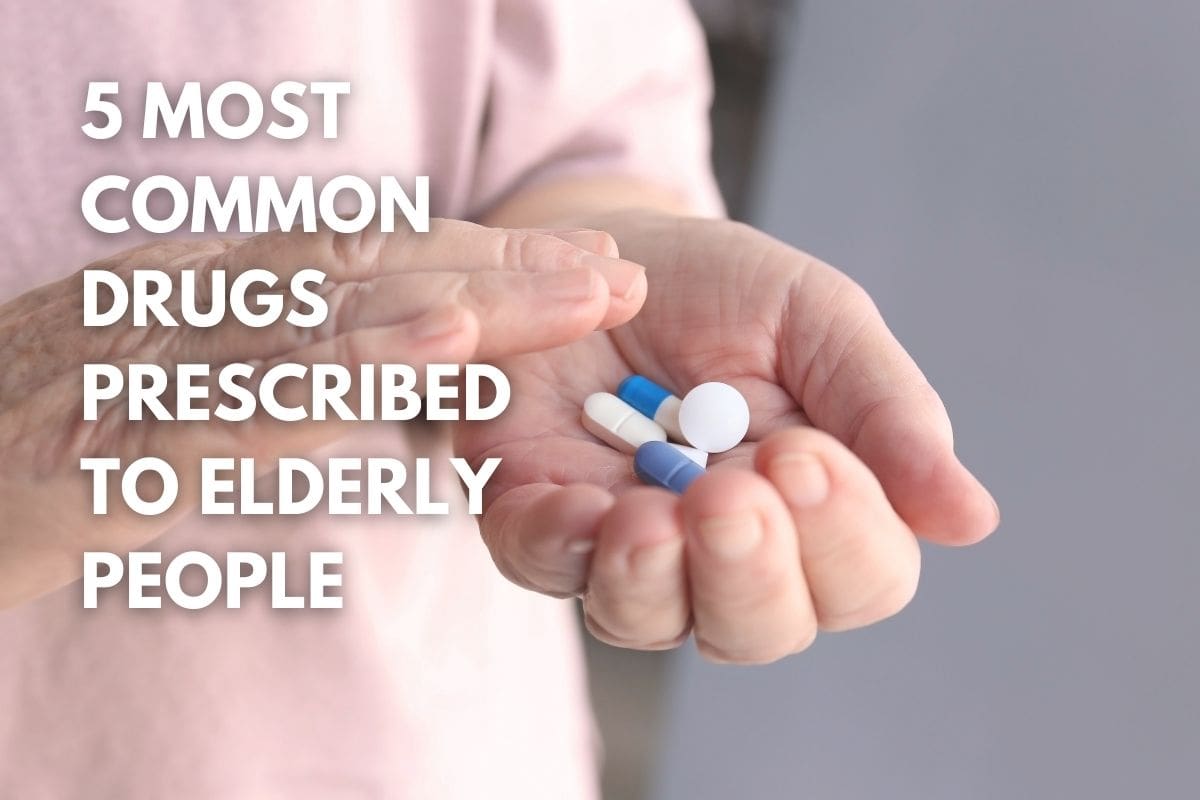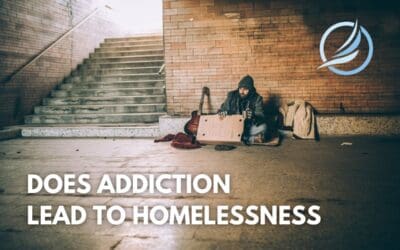Nearly seven in ten adults ages 45 and older use at least one prescription medication. Some of the most commonly used drug types in the United States include antidepressants, analgesics, antidiabetics, and beta-blockers. Read on to learn about the most common drugs prescribed to elderly adults that come with abuse potential.
1. Opioids
Opioids are potent painkillers that act on opioid receptors to produce morphine-like effects. Medically, they’re used for pain relief as they block pain signals from the brain. The most popular opioids are OxyContin and Percocet. Still, these drugs can be highly addictive when misused and abused. In fact, in 2019, around 9,290 people aged 55 and older died from an opioid overdose. Symptoms of opioid abuse include:
- Mood swings
- Irritability
- Depression
- Drug cravings
- Chronic constipation
- Small pupils
- Nausea
- Sensitivity to pain
- Slurred speech
- Shallow breathing
2. NSAIDs
Nonsteroidal Anti-Inflammatory Drugs (NSAIDs) are popular over-the-counter medications to treat pain, fevers, and inflammation. Popular NSAIDs include ibuprofen, naproxen, diclofenax, and aspirin. While these substances are not addictive, misuse and abuse can cause chronic intoxication. For example, acetaminophen overdose can lead to liver failure. The National Institute for Health and Care Excellence (NICE) categorizes people ages 65 and older as high-risk patients for NSAIDs. Common side effects of NSAIDs include:
- Indigestion
- Diarrhea
- Stomach ulcers
- Anemia
- Headaches
- Drowsiness
- Allergic reactions
- Liver toxicity
3. Benzodiazepines
Also known as benzos, they are a class of psychoactive drugs. As depressants, benzodiazepines help lower brain activity. This is why they’re used to treat conditions like anxiety, seizures, and insomnia. Popular benzodiazepines are Valium, Xanax, and Ativan. While these drugs are highly effective, they also have a high potential for abuse. This is why it’s important to learn and recognize the symptoms of benzodiazepine addiction. Adults ages 50 and over were more likely than younger adults to use a benzodiazepine more often than prescribed and to use a benzodiazepine to help with sleep. Here are some of the most common symptoms of benzodiazepine overdose:
- Lightheadedness
- Sluggishness
- Nausea and vomiting
- Headaches
- Dry mouth
4. Ambien
Ambien (Zolpidem) is a sedative used to treat insomnia. The overall prevalence of insomnia symptoms ranges from 30% to 48% in the elderly. Nearly 1/3 of the emergency room cases involving Ambien in 2010 were for a patient over 65 years. Since Ambien is a short-acting nonbenzodiazepine, it’s used right before bed to encourage sleep. Because Ambien produces sleepiness, it can also increase your risk of car accidents and more than double your risk of falls and fractures, common causes of hospitalizations and death in older adults. These are some side effects of Ambien abuse in the elderly:
- Impaired vision
- Slow breathing rates
- Muscle cramps
- Allergic reactions
- Memory loss
- Inability to concentrate
- Disorientation
- Emotional blunting
- Depression and suicidal thoughts
- Anxiety
5. Medical Marijuana
While recreational marijuana is gaining popularity just now, medical marijuana has been a preferred medication for the elderly in past years—over 2.2% of people aged 65 and older use medical marijuana. With many uses, including pain management, sleep aid, and mental health support, medical marijuana is widely used by the elderly population in the United States. Research suggests that medical marijuana may relieve symptoms related to chronic pain, sleep hygiene, malnutrition, depression, or help with cancer treatment side effects.
However, medical marijuana also can misuse and abuse, primarily when used with other drugs. Common side effects of misusing medical marijuana include:
- Increased heart rate
- Dizziness
- Impaired concentration and memory
- Slower reaction times
- Negative drug-to-drug interactions
Preventing Drug Abuse
If you or someone you know is using prescription medications, it’s best to learn more about their side effects and potential abuse. If you suspect an elder is misusing drugs, contact their doctor immediately. Discuss any alternatives to their prescriptions and learn how to monitor their intake better. Don’t hesitate to schedule an intervention with an addiction specialist. Discussing prescription drug misuse and abuse can help someone find lasting recovery.
Sources:
https://www.cdc.gov/nchs/products/databriefs/db347.htm
https://www.ncbi.nlm.nih.gov/pmc/articles/PMC4809680/

































